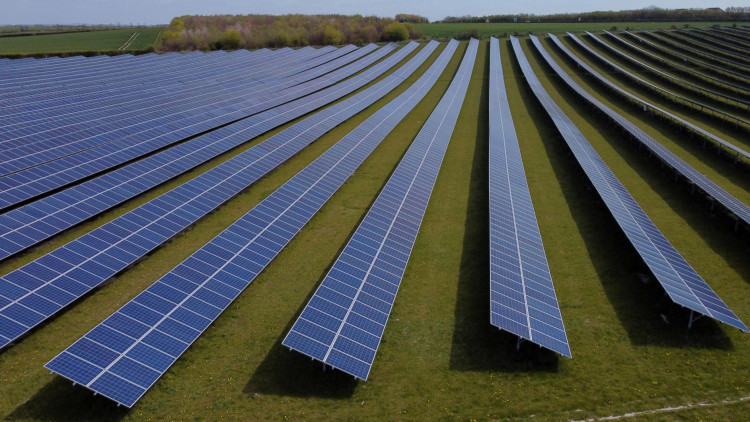According to a new report more than 1,000 shipments of solar energy components worth hundreds of millions of dollars have built up at US ports since June as a result of new legislation prohibiting imports from China's Xinjiang region due to concerns about slave labor.
Between June 21, when the Uyghur Forced Labor Protection Act (UFLPA) went into effect, and Oct. 25, U.S. Customs and Border Protection seized 1,053 shipments of solar energy equipment, according to Reuters.
The quantity of seizures, which hasn't previously been disclosed, illustrates how a strategy meant to put pressure on Beijing over its Uyghur detention facilities in Xinjiang runs the risk of slowing the Biden administration's efforts to decarbonize the American power sector in order to combat climate change.
Because proprietary trade secrets are protected by federal law, the government refused to identify the makers or confirm specifics regarding the amount of solar equipment in the shipments.
However, three industry sources with knowledge of the matter told Reuters that the detained products include panels and polysilicon cells with a combined capacity of up to 1 gigatonne, primarily manufactured by three Chinese companies: Longi Green Energy Technology Co Ltd, Trina Solar Co Ltd, and JinkoSolar Holding Co.
Longi, Trina, and Jinko contribute to up to one-third of U.S. panel supplies.
China denies any abuses in Xinjiang. Beijing originally denied the existence of any prison camps, but later revealed that it had established "vocational training centers" in Xinjiang to combat what it called terrorism, separatism, and religious radicalism.
At a time when the Biden administration is working to decarbonize the American economy and put the Inflation Reduction Act (IRA), a new law that supports clean energy technology to tackle climate change, into effect, the bottleneck poses a hurdle to the development of American solar.
According to the trade group American Clean Power Association, solar installations in the United States decreased by 23% in the third quarter, and roughly 23 gigawatts of solar projects are already behind schedule, partly because it is difficult to find panels.
Since the UFLPA essentially assumes that all products from Xinjiang are manufactured using forced labor, companies must provide sourcing information for imported machinery that links it back to the source material in order to disprove this assumption before imports can be cleared.
According to industry insiders, Longi, Trina, and Jinko get the majority of their polysilicon from US and European suppliers like Hemlock Semiconductor, a Michigan-based joint venture between Corning Inc and Shin-Etsu Handotai Co Ltd, and Wacker Chemie in Germany.






